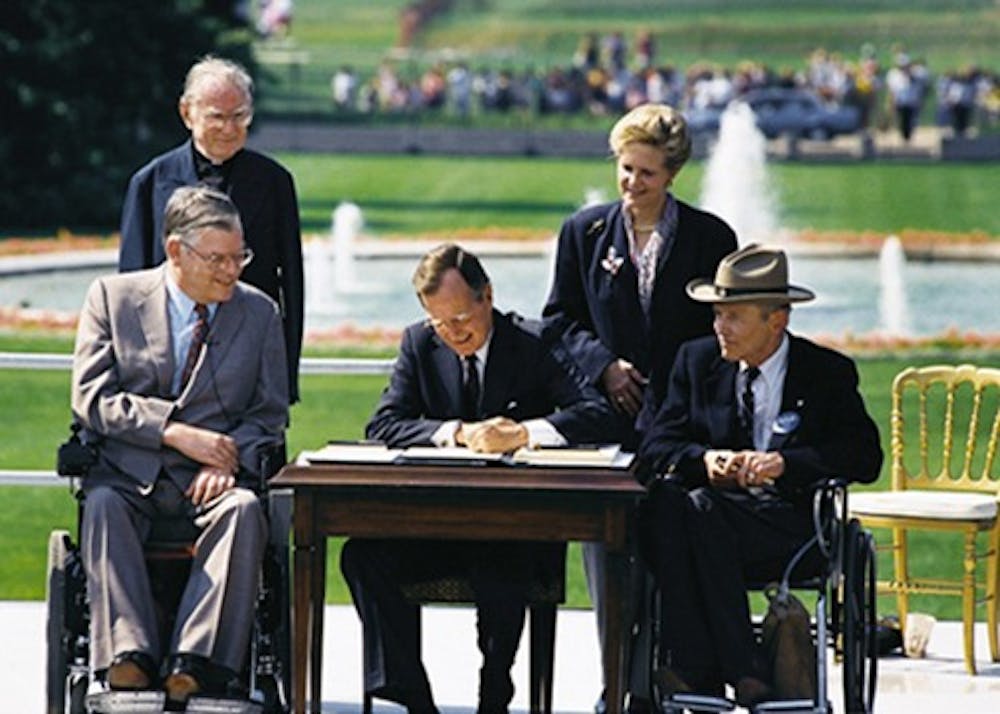The disability studies minor program at Shippensburg University presented a film on Oct. 28 to recognize the 25th anniversary of the signing of the Americans with Disabilities Act (ADA).
Under the law of the ADA, those considered physically or mentally disabled are granted the same employment opportunities and benefits as everyone else and are protected from being fired from a job due to a disability, according to the ADA National Network.
After the law’s passing, resources were put in place that made public services welcoming toward those living with disabilities, and gave them the opportunity to attend universities and public schools where it had not been permissible previously.
Before World War II, basic needs such as apartment buildings and public transportation were considered nearly inaccessible to the disabled. Up until, and even after this time, disabled men and women were institutionalized, sterilized and forced to live at the mercy of mental hospitals for much of their lives.
After the war, a group of individuals stepped forward to shine a light on what is today one of the largest minorities in America.
It was not until 1990, however, that disability groups began to receive government attention and support after years of protests, including chaining themselves to wheelchairs or crawling up the steps of the U.S. Capitol in Washington, D.C.
“The ADA rectifies the wrongs we did, and I think it is important for everyone to know and celebrate,” said SU disability studies professor Allison Carey.
Carey said current SU students are the first generation to grow up with the ADA already in place, and she considers herself able to guide students with processing information on the subject.
After the conclusion of the film, a documentary about the road toward equal rights for the disabled, an open discussion was held for anyone who chose to participate.
When Carey asked the audience who had previously heard of activism taking place in protest of disability discrimination, almost no one in the crowd raised their hands. According to Carey, this is because high schools and the media are not typically informative in regard to this type of activism.
Several students said they felt they had taken something important away from the documentary, and felt moved by what they had learned. A talking point during the discussion was the perseverance the activists displayed during the process to end discrimination.
“There’s a role for being nice, but anger can also be very important. It’s important to let people be angry, because if you shut it down things like this can’t happen,” Carey said. “A lot of people think it is impossible to create a better world, but it is not.”
The event was held in Grove Forum in John L. Grove Hall at 7 p.m., and was free and open to the
public. Scholar and author Richard Scotch will appear at SU on Nov. 12 to present a lecture on the im-
pact of the ADA in society. Before the lecture a reception will be held, where SU’s disability awareness
club will be offering cake and presenting a display about the history and importance of the ADA. For more information, contact Carey at accare@ship.edu.


The Slate welcomes thoughtful discussion on all of our stories, but please keep comments civil and on-topic. Read our full guidelines here.